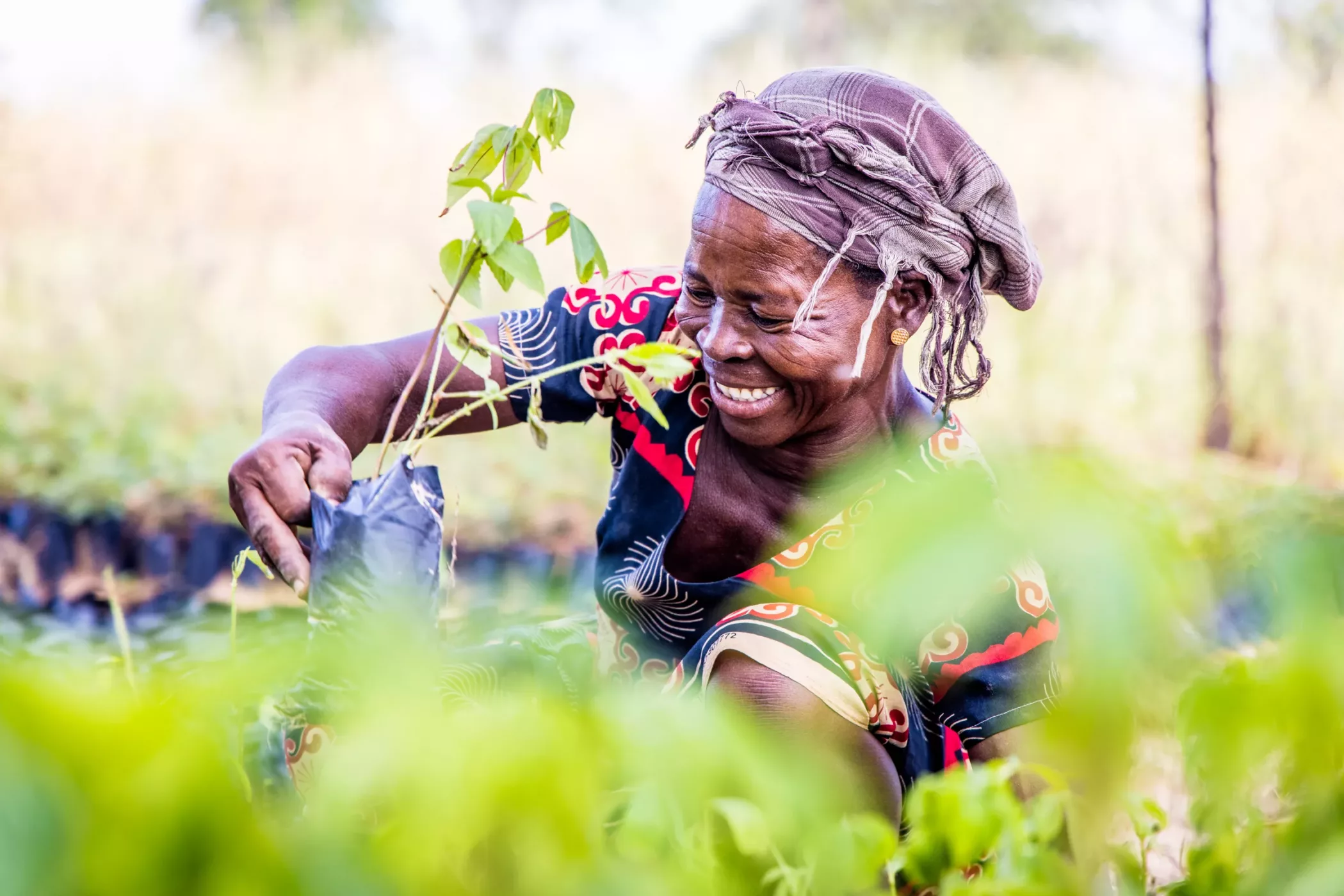Ghana
In North-Ghana, we have been working since 2021 to restore riparian forests and improve the environment by planting trees. We are doing this in the Bongo district, together with local people and our partners Tree Aid and Blue Deal.

In North-Ghana, we have been working since 2021 to restore riparian forests and improve the environment by planting trees. We are doing this in the Bongo district, together with local people and our partners Tree Aid and Blue Deal.
trees
farmers get agroforestry training
people benefit from the project
planting period
Between 2021 and 2024, together with local communities and our partners, we planted more than 200,000 trees. Some of these are growing along the river banks of the Vea Dam. Planting trees at this site is important because trees help prevent erosion by holding the soil together. In this way, they prevent (fertile) soil from washing away and make the soil retain water better.
We also helped farming families with the introduction of agroforestry. Some 400 farmers have been trained to plant trees that produce food such as mango and cashew. Families can use these products for their own households or to sell at local markets for extra income. And another benefit? The trees provide fertile soil that better holds water: a sustainable alternative to conventional farming methods that actually deplete the soil further.
Planting, but especially keeping trees alive, is quite a challenge in North-Ghana. Water is limited, land-use rules are complex and there are many cattle walking around who like to snack on young trees. We have therefore taken several measures in recent years to deal with this as best we can.
In the coming years, between 2025 and 2031, we will continue with the project. Together with Tree Aid and Blue Deal, we focus (even more) on monitoring and protecting the trees. We are also supporting the communities with the planting of another 35,000 trees for agroforsestry. A large proportion of farmers is already applying agroforestry; we hope to see more of them in the coming years. In the video below, Joshua, one of the participating farmers, explains what the planting means to him.
Without the commitment of the local people, it would not be possible to make this project a success. Luckily, during previous project visits we have experienced that the people are very dedicated and committed to planting trees. A local field technician has been appointed to support the people in everything involved in the project: growing the trees, planting and caring for them.
The communities also take care of protecting the trees. They have built special walls of mud or stones around the young trees that keep hungry cattle away and protect the plantings from drought. For the coming years too, we have provided extra budget to protect the new and existing plantings so that as many young trees as possible grow into adults!
The planting will take place in the area around Vea Dam, in Ghana’s Bongo district. Some trees will be planted along the Vea dam, while others will be planted on farmers’ land and around families’ houses.
Within this project, we are working with our partners Tree Aid and Blue Deal. Tree Aid is committed to tackling poverty and the effects of climate change together with local communities. To do this, the NGO has appointed an experienced and dedicated team to coordinate project activities in North-Ghana.
Blue Deal is a program from Dutch Water Authorities and the Dutch Ministries of Foreign Affairs and of Infrastructure and Water Management. The aim: to provide access to sufficient, clean and safe water to 20 million people in 2030. With this project we actively contribute to this aim.
– Jaap Bos, Coordinator Blue Deal North-Ghana